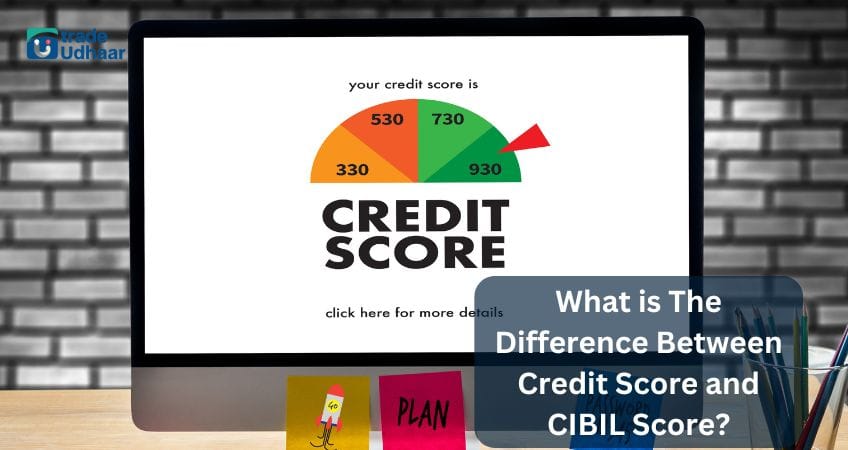8 Proven Ways to Improve Your Credit Score Quickly

A high credit score is the key to getting financial assistance at low interest rates with ease. Major financial institutions that lend money to individuals or organizations assess their credibility before approving loans. A credit score reflects your creditworthiness to the world attracting lucrative loan offers with low interest rates and long repayment periods.
As soon as you apply for a loan or credit card or any other lending product from a bank, NBFC, or any financial institution, your credit score and financial information are fetched through a credit bureau by that firm. Hence, your score concludes your credit history to determine whether you can be trusted to lend. So, if you’re low on your credit score, this article shares in-depth knowledge about how you can improve your score exponentially with ease.
How to Improve Your Credit Score in a Few Days?
There are a total of 8 smart ways to improve your creditworthiness quickly in just a few days. Practicing these moves will involve showing great patience and consistency.
Make Timely Payments
Missing EMI dates and making late payments are some of the primary reasons for decreasing your credit score by a great margin. Additionally, the late payments also attract penalties as well as interest rates applicable until you pay. To escape this situation organize your schedule, make a chart, and remember to pay all the installments on or before the due date. You will witness a significant rise in your score. If you have a problem with monthly due dates, you can contact your lender directly requesting to shift the dates to the period of the month when you are always financially strong.
Limit Credit Utilization and New Requests
Using too much credit can be a pain, reducing your credit score, pushing you into more debt, and increasing the chances of missed or late repayments. Utilization of more than 30% of the total credit limit is considered high. So limit your overall credit usage to avoid reducing your credit score. Moreover, it also applies to the number of times you have applied for lending services like a loan or credit card in a specific period. The queries you make are reflected on your credit score and if many, then it shows a higher dependency of your financial life on credit to the lenders. Thus, don’t use too much credit limit or apply for multiple credit options in a short time and your credit score will improve.
Create a Healthy Credit Mix
A credit mix is the combination of different credit lines and a healthy credit mix should have the right combination of secured loans like home loans, car loans, etc., and unsecured loans like credit cards, personal loans, etc. Secured loans are those which are approved by banks or institutions against collateral and unsecured loans are not backed by any source to retrieve the money if you default on your installments. Concluding the point, too many unsecured loans will negatively affect your credit score, but creating the right balance will help to increase it.
Limit Credit Card Requests
Many people rely on credit cards for monthly expenses and pay the amount later next month. But things go out of hand when they request too many credit cards from various lenders and are not able to repay the amount on time as it goes out of the income range. This affects the credit score negatively in two ways. First: way too many hard queries reflect on the credit report and second: higher debt results in missed or late payments.
Keep in Check Your Co-signed, Guaranteed, or Joint Accounts
If you have co-signed, taken out a guarantee, or have a joint account for someone, then you will be equally responsible for the late payments, defaults, or worse: if the person cannot repay the installments. As a solution, you should avoid becoming a guarantor or cosigner for a loan approval of someone else.
Check Credit Score More Often
Your credit score changes every month, it is advised to keep its track and report if any discrepancy is anticipated. Sometimes your credit score is also reduced because of the incorrect information or delay in credit information from the institutes. This will help you in two ways: you can keep checking your credit score for improvements following the above tips and also you can rectify any inconsistencies you witness in the report.
Take Good Debt
Good debt is a debt taken deliberately irrespective of the need to improve the credit score. For example, you can finance a smartphone or laptop of which the EMIs you can repay easily within a few months. While repaying the amount you will follow the above tips, be patient, and witness a periodic increase in your credit score. Gradually the results will be positive till the time you have repaid the loan. Remember to take a longer tenor with a low installment amount.
Think Before Closing Credit Card
People with multiple credit cards often close the ones that are not in use and it works. However, you should also know that closing an old credit card will also erase your long-created credit record which may affect your credit score negatively. It is because the age of your credit account directly affects your credit score. The older the account is, the more reliable it is considered. So, closing an old credit card account may not be a good idea. But remember, the effects will be temporary and your score will eventually recover with time.
FAQs: Credit Score
Q. What is a Credit Score?
Ans. A credit score is a three-digit number ranging from 300 to 900. Credit score concludes your creditworthiness and financial status to lenders as an eligible borrower. The closer it is to 900, the more lucrative loan and credit offers you will get, with low interest rates and long tenors. Your credit score is updated monthly and TransUnion CIBIL, Experian, Equifax, and CRIF High Mark are the four major credit bureaus that keep track of your credit history to provide a score. For example, given by CIBIL, your credit score is called CIBIL score.
Q. What is Considered a Good Credit Score?
Ans. Every credit bureau has its own credit rating model and each provides a varying credit score. Generally, a credit score between 700-850 is considered a good credit score and lenders approve the loan request of such individuals with ease, but of course also considering the income sources.
Here are the credit score ranges and their status:
- 800–850: Excellent (low risk)
- 740–799: Good (often considered)
- 580–669: Fair (high risk)
- 300–579: Poor (not considered)
Explore:





